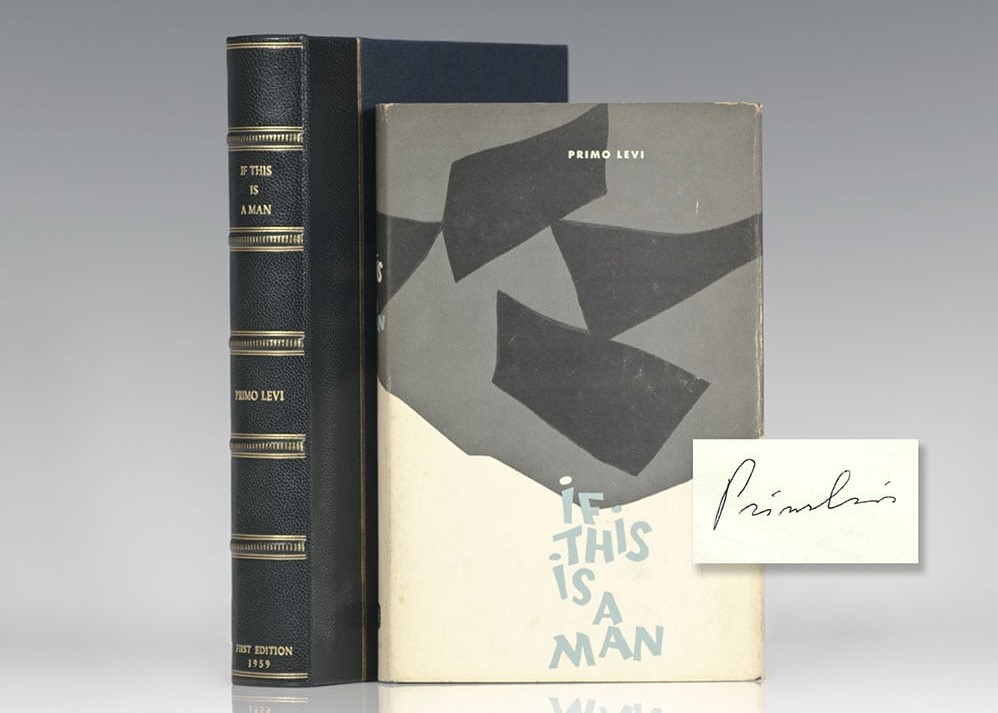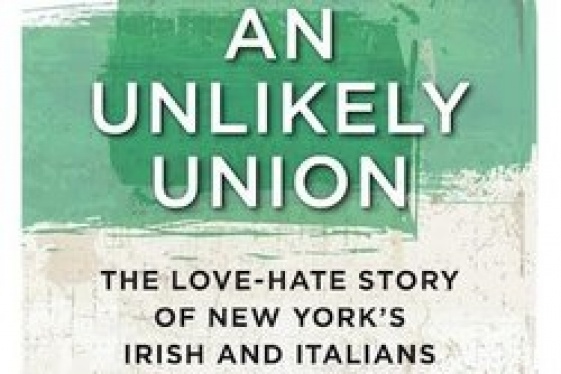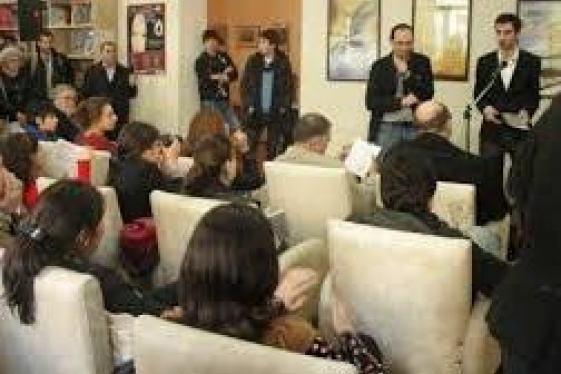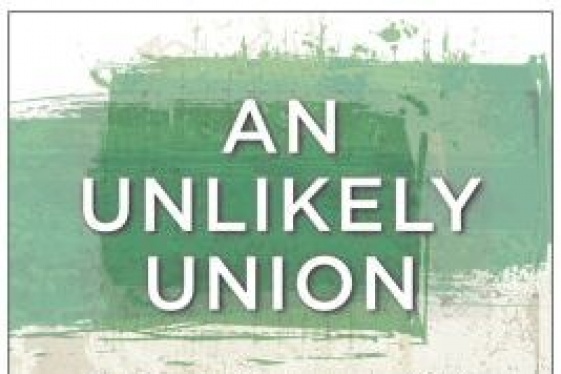

If This is a Man was written in 1947 by Primo Levi (1919 – 1987). He was a chemist who wrote this biographical work after his several years in a concentration camp. It was first published in 1947 and later in 1958 by Einaudi. It has been defined as one of the most important recounting of the Jewish extermination by the Nazis and it is about the year the author spent at Monowits (Auschwitz III) until its liberation.
The work is a diary-account interchanging the present tense – when Levi is writing his diary – and the past tense – when he is narrating his story. It brings the readers through Primo Levi’s life between December 1943 – when he was captured by fascists while he was fighting alongside the partisan group he belonged to – until January 1945.
The author not only describes what life was like in a concentration camp and the unimaginable tortures he was forced to be subjected to, but also the human reactions triggered by the inhumane treatments of the victims. People were not only physically destroyed, but they were considered and treated as objects, whose life had no value at all and whose dignity was crushed; the only way a person could oppose was through his own personal internal resistance.
“If this is a man is a book that for some time has remained confined to the genre of testimonies, but it is much more, it is a literary masterpiece that, through the extreme experience of Auschwitz, speaks to us of man, of what he can do for better or for worse, of our responsibilities, yesterday as today, because, as Primo Levi himself says, the idea that the foreigner is automatically an enemy lies hidden within us like an infection, but when it becomes a system of thought it can produce acts and gestures that then lead directly to the concentration camp. It happened, so it can happen again”.
Primo Levi can produce a clear style of writing, showing his willingness to deeply understand what has happened and the horrors he went through. He is direct and explicit in demanding the reader’s attention and keeping the memory of what happened, so that he/she can too be aware, vigilant, and responsible. The author does not ask for compassion, but for awareness and moral attention towards the facts; he does not judge nor hate, but he doesn’t forgive either.
Concentration camps are places where human nature is completely lost, and it gives in to unimaginable cruelty. Primo Levi – with a syntax resembling the one of the great Italian and Latin classic, Homer’s epic and Dante’s majesty – develops this work for the victims, the oppressors, and everyday readers.
The author depicts every kind of scene; from waiting for a deportation order, travelling in a cattle cart by train, walking towards selection to imagining what it must be like to know you are about to be gassed and cremated.
The book has been initially rejected by different publishers and its title was later changed a couple of times – the initial one was Sul Fondo (In the Abyss) and then The Drowned and the Saved – until its final version taken from the poem – written by Levi himself – that opens the book.
The book’s reception was slower in the United States. However, a draft of If This is a Man was discovered in the U.S. and successively displayed at the Holocaust Memorial Museum in Washington. This rare piece – typewritten and with the author’s notes and underlined parts – was found in the house of Levi’s long distant relatives who had emigrated to the United States. As a matter of fact, since he was struggling to find an Italian publisher willing to publish his book, he had sent the work to a cousin hoping that she could find him an American publisher.
It is superfluous to say that this is a difficult book, for the topic it deals with, the facts it describes and the reality it forces us to face and be aware of; but it is so highly necessary, so utterly important, so that we can all truly never forget.
Voi che vivete sicuri nelle vostre tiepide case, voi che trovate tornando a sera il cibo caldo e visi amici: considerate se questo è un uomo che lavora nel fango, che non conosce pace, che lotta per mezzo pane, che muore per un sì o per un no. Considerate se questa è una donna, senza capelli e senza nome, senza più forza di ricordare, vuoti gli occhi e freddo il grembo come una rana d’inverno. Meditate che questo è stato: vi comando queste parole. Scolpitele nel vostro cuore stando in casa e andando per via, coricandovi alzandovi; ripetetele ai vostri figli. O vi si sfaccia la casa, la malattia vi impedisca, i vostri nati torcano il viso da voi.
You who live safe, in your warm houses; You who find on returning in the evening Hot food and friendly faces: Consider if this is a man, Who works in the mud, Who knows no peace, Who fights for a bit of bread, Who dies because of a yes and because of a no. Consider if this is a woman, Without hair and without name, Without enough strength to remember, Vacant eyes and cold womb, Like a frog in the winter: Reflect on the fact that this has happened: These words I commend to you: Inscribe them on your heart When staying at home and going out, Going to bed and rising up; Repeat them to your children: Or may your house fall down, Illness bar your way, Your loved ones turn away from you.
You may be interested
-
'Phantom Limb': A Conversation With Dennis...
Dennis Palumbo is a thriller writer and psychotherapist in private practice. He's the auth...
-
An Unlikely Union: The love-hate story of Ne...
Award-winning author and Brooklynite Paul Moses is back with a historic yet dazzling sto...
-
Former Montclair resident turns recipes into...
Former Montclair resident Linda Carman watched her father's dream roll off the presses thi...
-
''La Gente di Mulberry Street'' presentato a...
Valsinni- Italia, terra di emigranti. Presentato a Valsinni il nuovo saggio storico di Raf...
-
'An Unlikely Union' author Paul Moses on his...
by Ginger Adam Otis Any journalist who has ever been an author has lived through...
-
'An Unlikely Union': Paul Moses on the urban...
Few American cities, with the possible exception of Chicago, do urban ethnic drama like Ne...
-
'Augie’s War' novelist to appear at Elkins bo...
Charleston author and Gazette-Mail wine columnist John H. Brown will conduct a book readin...
-
'Ferrante Fever' Documentary: A Literary Phen...
It's generally accepted that, in order to achieve fame and fortune, one must be prepared t...










